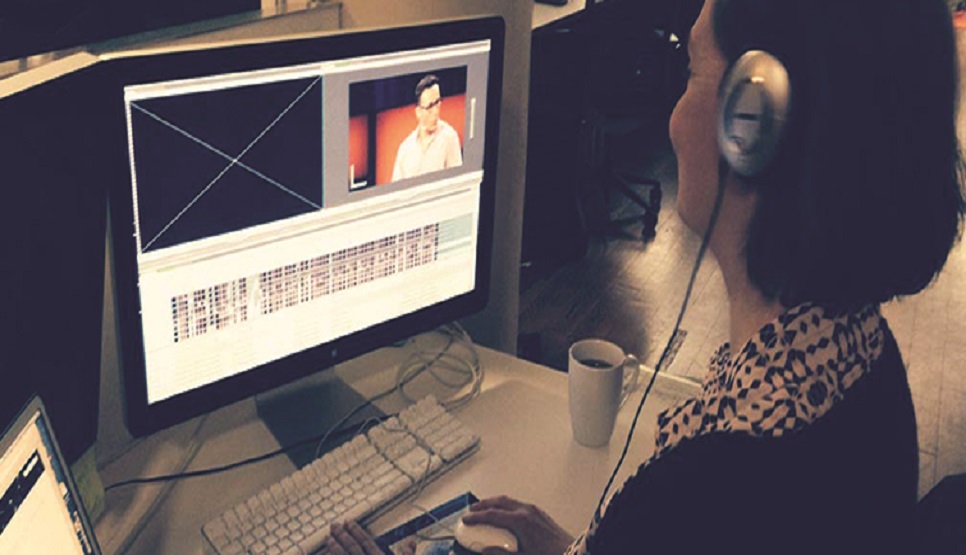
Whether you’re learning a foreign language, an instrument, or any type of skill, the fastest way to master it is to model experts that have been there.
We’ve compiled a list of insightful, action-oriented tips from the top language-learning experts in the world that you can model to help you learn faster.
These tips include everything from using mnemonics, improving your communication skills, memorizing vocabulary, what to do when in a foreign country, and even re-learning a language you’ve forgotten.
Let’s dig in!
1. Benny Lewis

Founder of Fluentin3months.com
Twitter handle: @irishpolyglot
“Put down your book!
Schedule time to meet up and practice with native speakers. It is the fastest way to learn a skill in a new language. You can use your spoken sessions as a basis for your studies and as an opportunity to practice what you learn. This way you’re building that important muscle memory early on.”
You live a new life for every new language you speak. If you know only one language, you live only once. pic.twitter.com/yIClvcGBFf
— Benny Lewis (@irishpolyglot) May 9, 2015
2. Maneesh Sethi

Founder of Pavlok and blogger at HacktheSystem.com
Twitter handle: @maneesh
“You must be an active learner. Most people allow themselves to be taught to, but you have to take an active role in asking questions. The best way to understand this process is via video”
How to Create Habits That Stick (+Pavlok Giveaway) | The Art of Manliness http://t.co/CFA79hCv6u — Maneesh Sethi (@maneesh) October 23, 2014
3. Tim Ferriss
Host of The Tim Ferriss Show and Author of Four-Hour Chef
Twitter handle: @tferriss
“One of my more controversial pieces of advice, but one that I absolutely insist on when I advise beginners, is that you must speak the language right away if your goals in the target language involve speaking it.”
How to Learn Any Language in Record Time http://t.co/9hEl48lESP — Tim Ferriss (@tferriss) July 16, 2014
4. Matt Kepnes

Founder of NomadicMatt.com
Twitter handle: @nomadicmatt
“To be successful in learning what you need for your trip, you need as much specificity as possible. I’m lucky enough to typically have three whole months before a trip, in which I can devote most of my days to learning a language, and that makes fluency a realistic target.”
4 steps to learning the basics of any language (for your next trip overseas): http://t.co/ujGc4hlLyb #trip #travel #languages — Nomadic Matt (@nomadicmatt) December 24, 2014
5. Marcello Arrambide

Founder of WanderingTrader.com
Twitter handle: @wanderingtradr
“Colombians do generally speak a more formal and better understood dialect of Spanish as a whole. The only exception with would be the coast. If anyone was considering learning Spanish I would recommend to learn in Medellin, Colombia.”
The #Portuguese Language Enigma: http://t.co/zit3ftYurm Stop Messing With My Head… #Brazil http://t.co/XUj0ncYNyB
— Marcello Arrambide (@Wanderingtradr) January 5, 2015
6. Liz Seda

Twitter handle: @ElizabethSeda
“There comes a point in which you know enough to get around, but now you have to start really perfecting your speaking abilities. At this point, it seems like you aren’t learning anything. Ever. You may add a few words to your vocabulary one day, or learn a new concept another day, but it just feels like you aren’t making progress. This is when you want to quit. But don’t quit!”
Don’t Let Fear Get In Your Way! – http://t.co/zcDp0qdrVU — Liz Seda (@ElizabethSeda) March 24, 2014
7. Olle Linge

Founder of HackingChinese.com
Twitter handle: @HackingChinese
“Spaced repetition software allows you to retain a large number of words without spending too much time. This increases our passive understanding of the language a lot and allows us to gradually increase the amount of the target language we can absorb and therefore also increasing the efficiency of our immersion effort. So, in essence, I think reading and listening in combination with SRS is the best way to expand vocabulary.”
Learning efficiently vs. learning quickly http://t.co/0YIGwWHQ5dhttp://t.co/4wAavIsy2S — Olle Linge (凌雲龍) (@HackingChinese) May 4, 2015
8. Brian Kwong

Founder of apolyglotworld.com
Twitter handle: @b_kwong
““Friend” does not equal “language partner”
Practicing with existing friends or partner who speaks your target language is usually the first thing that comes to mind for speaking practice. However, your friends will eventually be tired of practicing with you. The first few times are generally okay, but it takes time and energy to constantly be someone’s practice partner, especially if you and your friend are used to communicate with a common language.
To really become fluent, you need to consistently practice speaking the language. You need repetition. You need discipline. This is not so much fun for your friend, especially if you are talking like a baby in their native language.”
The 9 Habits of Highly Effective Polyglots http://t.co/X2txV02DEu via @b_kwong
— Brian Kwong (@B_Kwong) May 12, 2014
9. Óscar Pellus

Founder of Unlimited Spanish
“A better approach for learning vocabulary is to learn phrases instead of just words. It’s easy to create a picture in our minds when we see a phrase because something is happening. The more vivid the image is, the better you will learn. And remember, your brain loves context.”
10. Susanna Zaraysky

Author of Language is Music and Travel Happy
Twitter handle: @languageismusic
“Music activates more parts of the brain than language does. So when you listen to a song or advertising jingle, you are more likely to recall the words from the song or jingle than if you just read them or heard them spoken. Find songs where the words are not sung very fast so that you can hear each word distinctly. Mana for Spanish learners, is a good choice.”
Is learning on the job the best way to master a language? http://t.co/ASdWt8HqTg — Susanna Zaraysky (@languageismusic) April 7, 2015
11. Mark Manson

Author of Models: Attract Women Through Honesty
Twitter handle: @iammarkmanson
“Classes suck and are an inefficient use of time and money. All things considered, you get a really poor return for your time and effort in group classes. There are two problems. The first is that the class moves at the pace of its slowest student. The second is that language learning is a fairly personal process — everyone naturally learns some words or topics easier than others, therefore a class is not going to be able to address each student’s personal needs as well or in a timely fashion.”
New Post: 7 Books That Will Change How You See The World http://t.co/6XymptqTW9pic.twitter.com/W8UG3pfRJa — Mark Manson (@IAmMarkManson) April 2, 2015
12. Ben Whately

Community manager of memrise.com
Twitter handle: @benwhately
“Mnemonics and sample sentences are both examples of “mems”. Mems are anything that helps you to put a new word into a context, and make it more than an abstract piece of vocabulary. Using Mems is my best recommendation to learning lots of vocab, fast!”
13. Sebastian Betti

Curator at TEDxPESA
Twitter handle: @se6as
“Think about language-learning as a gateway to new experiences. To Spanish translator Sebastián Betti, learning a language has always been about focusing on the experiences that the new language would open up, from “visiting theme parks, attending air shows, enjoying cowboy poetry and folk-rock festivals, to learning about photo-essay techniques.”
14. Melanie Pinola

Writer at Lifehacker.com
Twitter handle: @MelaniePinola
“It’s not as easy for adults to pick up a new language as it is for little kids with their sponge-like brains. But you can still master a new language and learn efficiently if you know how your brain works when confronted with this challenge. Here’s the science of learning a new language: why spaced repetition is best, you should study at night, look for content in the other language in subjects you enjoy most, and why you should mix the old concepts with new ones while you’re learning.”
Every other language sounds so musical to me. But none as musical (and angry) as Japanese. — Melanie Pinola (@melaniepinola) July 30, 2014
15. Luca Lampariello

Founder of thepolyglotdream.com
Twitter handle: @poliglotta80
How to Reach Native-Like Fluency In a Foreign Language http://t.co/L991F2h687 — Luca Lampariello (@Poliglotta80) May 11, 2015
Are there any experts that we missed in this post?
We’d love to hear what you thought about the advices from these language learning experts!
The post 15 Language Learning Tips From 15 Language Experts appeared first on Lifehack.
Source: Lifestyle







